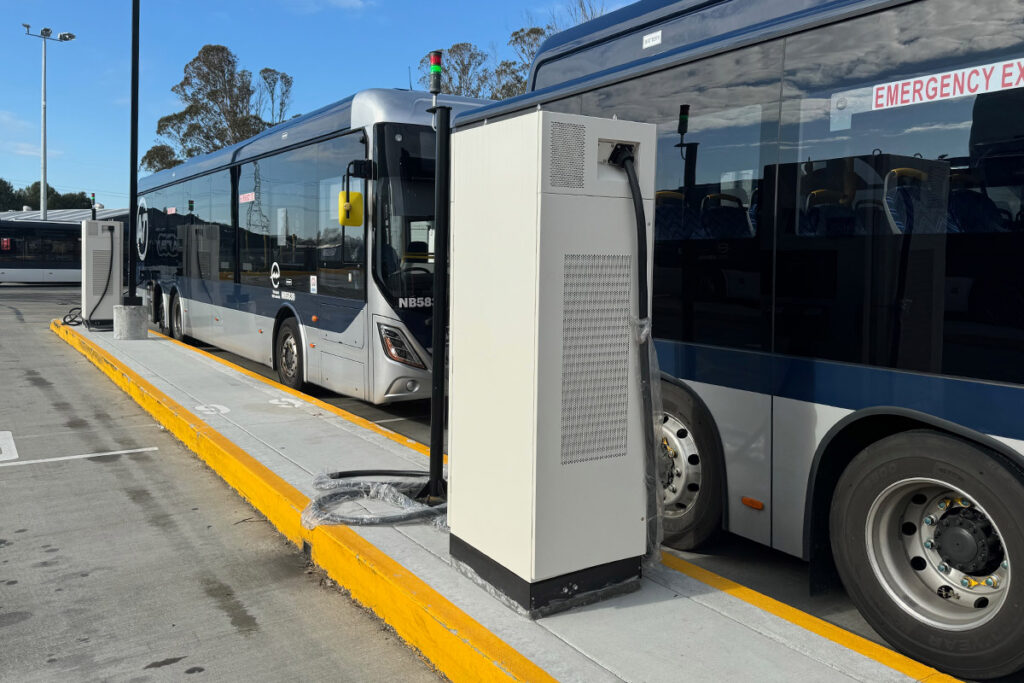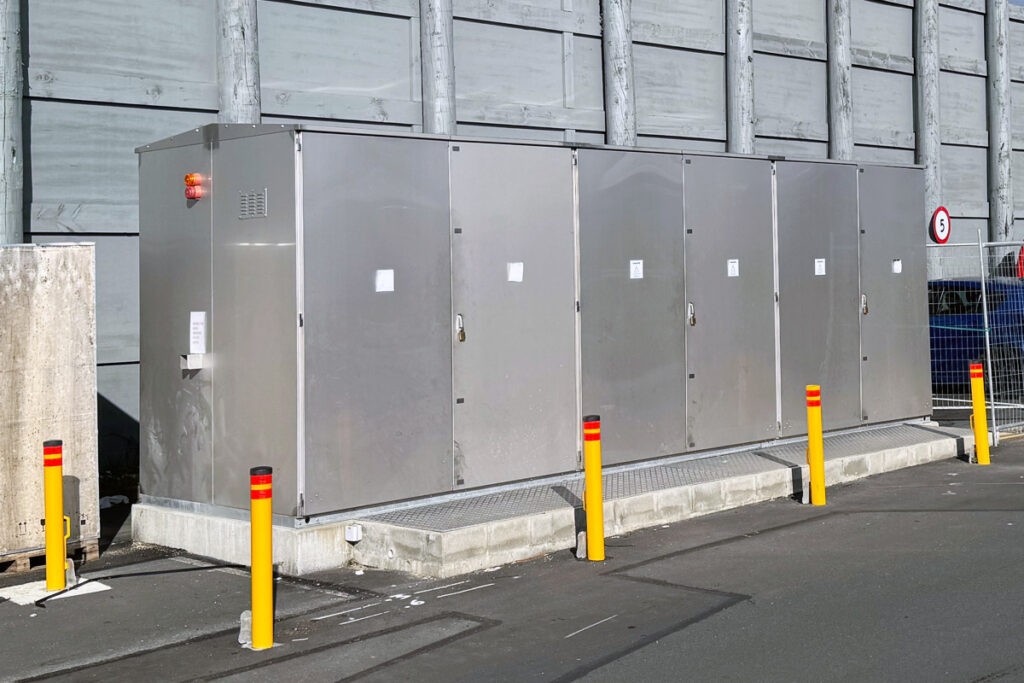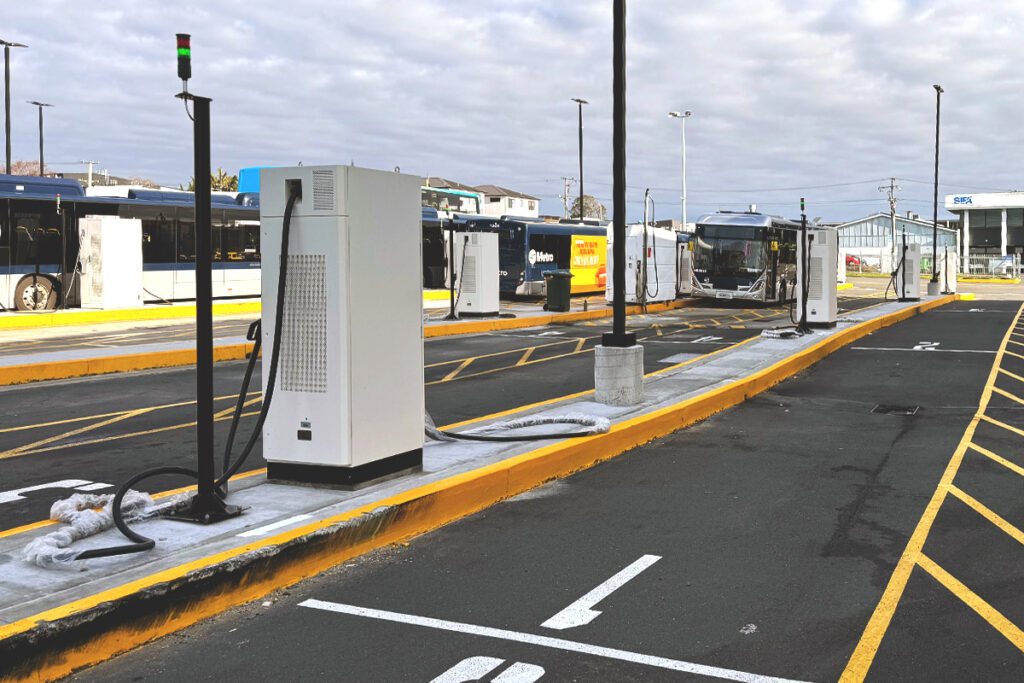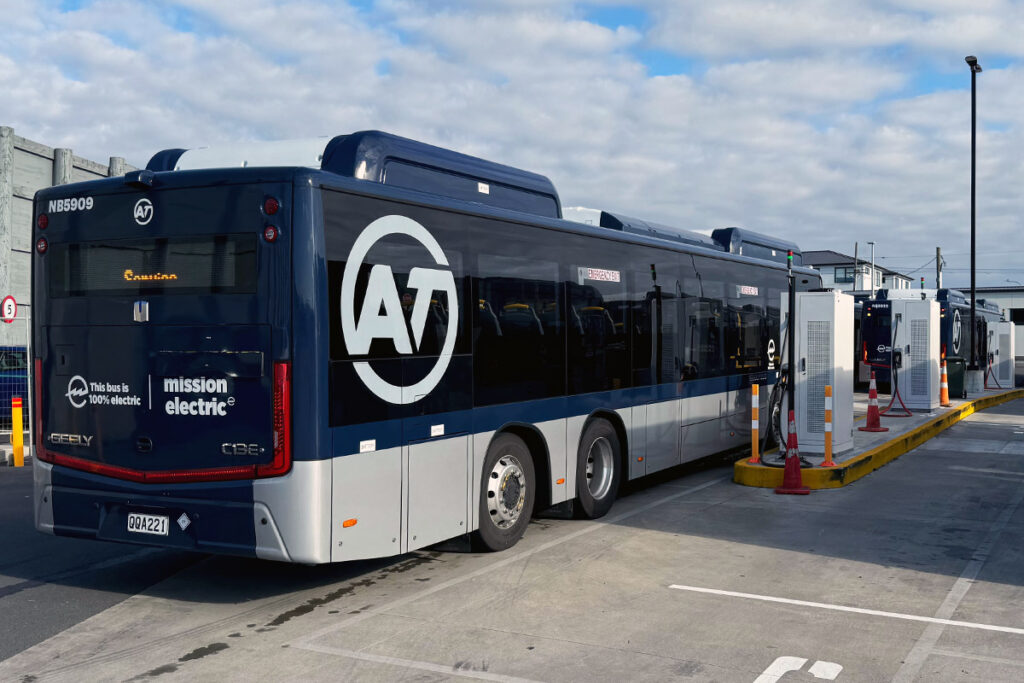Electrification of NZ Bus New Lynn Depot: Stage Two
NZ Bus has its eyes firmly focused on a cleaner, brighter future for Aotearoa’s public transport system. Which is why they are working in partnership with Auckland Transport (AT) to replace their existing fleet of diesel buses with electric alternatives.
This is all part of AT’s Mission Electric to create a more efficient and sustainable transport network.
A fleet of electric buses is an impressive way to tackle the large carbon footprint created by public transport.
But, these buses don’t run by magic. They need a comprehensive infrastructure to power them day in and day out. Phase One of the New Lynn depot upgrade introduced the ability to charge 42 buses. However, they needed more power captain!
So, in came Phase Two…
The Challenge
Upgrade the EV infrastructure to create more power!
With just three months allocated to complete phase two of the New Lyn bus depot project, there was not a lot of time to complete the extensive amount of work.
Also, an ever-changing design plan meant adapting and evolving as the parameters shifted.
Finally, all of this had to be completed while keeping the bus depot fully functional and operating at full capacity. It was a challenge that DGE were ready for!
The Scope
Complete Phase Two of Construction and EV Installation at the New Lyn bus depot
When the New Lynn bus depot was initially constructed, electric buses were not even a concept! So, an entire redesign was implemented to upgrade the existing site, allowing it to charge and power 86 buses. Phase One of the project saw us install the infrastructure to charge half the fleet of buses.
Phase Two involved:
- Installing a second transformer
- Connecting cabling to the main switchboard equipment
- Trenching from each of the 21 new EV chargers to the main switchboard
- Building a traffic island for each charger to protect the equipment
Each of these tasks needed to be undertaken within a strict 3-month timeframe and while the bus depot remained fully operational. Safety and efficiency were two of the main concerns throughout this phase of the project.
Our Delivery
Completion on time and on budget!
Having successfully completed Phase One of this project, our skilled DGE team knew what to expect for Phase Two. As is the case for many projects, the plan and design were constantly evolving to accommodate the needs of the site and to ensure a successful outcome.
While challenging, our team worked efficiently to install 21 new chargers and their accompanying infrastructure. This was no small feat as there were buses, passengers and personnel moving around the site constantly.
Our previous work on Phase One meant we knew we’d be equipped to successfully deliver the work required. The logistics of installing 21 new chargers and trenching from each of them to the main switchboard in a fully operational bus depot were difficult. But with expert coordination and careful planning, we were able to deliver above and beyond expectations without any safety risks to our team, commuters or the bus drivers.
The largest challenge was the final stage of the project – connecting the new chargers to the main switchboard. This involved shutting off half the switchboard, running the new cabling underneath the existing connections, and then making the new connections live, all while half the switchboard was operational and powering the initial chargers.
The Outcome
A project partner you can rely on
Phase Two of the New Lynn bus dept upgrade was completed on time and slightly under budget. NZ Bus could not be happier with the end result!
Despite the challenging conditions of expanding a fully operational transport site, we delivered the required works smoothly and efficiently. With careful communication, a strong logistics strategy and adaptability to the needs of the client, the project exceeded expectations.
With Phases One and Two under our belts, NZ Bus had the confidence to award DGE with the future Phase Three contract which will involve the development of a connected site and the construction of a workshop specifically for bus repairs.
The completion of this project marked a huge surge forward in NZ Bus’s goal to create a sustainable and clean transport network with an all-electric bus fleet.
